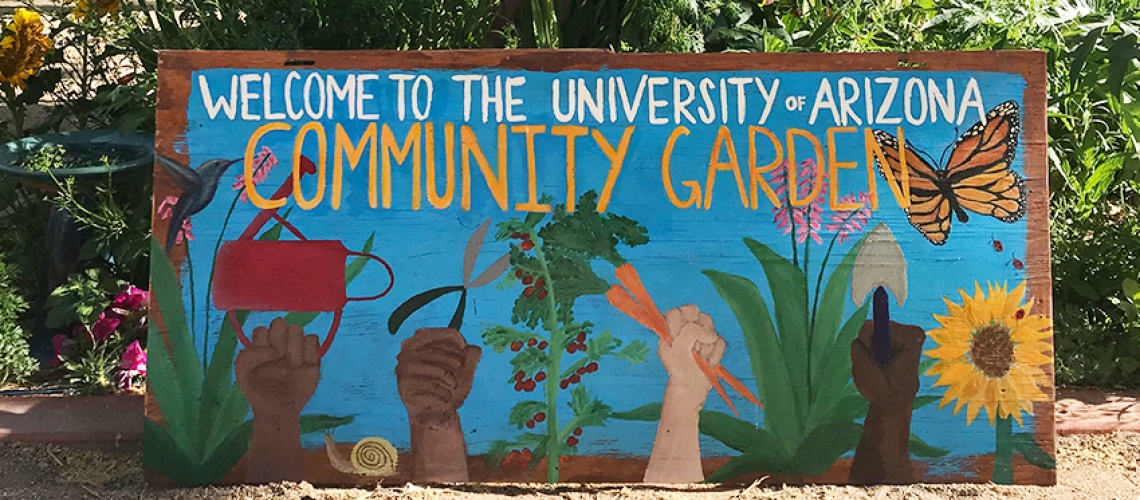
Watch the video at KOLD News 13. Find out more about the Community Garden.
Article by Hannah Tiede, KOLD News 13, 2021. Photo by Kevin Choi, Office of Sustainability, 2021.
Last week, the Biden administration raised the refugee cap of 15,000 people to 62,500 people this year.
As we prepare for more refugees to arrive in Tucson, a new program is expected to grow. The Refugee Garden Art Program (GAP), which sprouted up in the middle of the pandemic, gives newcomers a sense of belonging.
“It’s an equalizer,” said Gretchen Crossley, the volunteer art teacher for GAP. “Whether it’s music or cooking or gardening or painting; everyone can express themselves differently. Some of our friends here have just been in their apartment and not speaking English or learning English and have just been feeling very isolated. So, we get together at the garden once a week.”
“COVID-19 on top of social isolation, on top of refugees who have been through genocide and war is just a bad combination,” said Dr. Eiswerth, the founder and director of Iskashitaa Refugee Network.
On Wednesdays, refugees meet at the University of Arizona Community Garden to harvest food and participate in art projects. Some have never picked up a paintbrush in their lives.
“Never,” said Mathurin Maoundonodji. “So, I am excited to learn artwork!”
Maoundonodji is originally from the African nation of Chad.
“My country [has been] under cruel dictatorship for more than 30 years,” he said.
Fleeing violence and human rights abuses, Maoundonodji ended up in a refugee camp for six years before receiving resettlement through the United Nations. He moved to Tucson in 2008.
“I was by myself, but it was not easy,” he said.
Thanks to produce harvesting and other refugee programs, he learned how to speak English and found a strong sense of community. Maoundonodji now jumps at the chance to give back and has served Iskashitaa and AmeriCorps for several years.
So far, Iskashitaa has worked with 38 ethnic groups. The nonprofit harmoniously brings people together through food, music and art.
“It’s a universal language,” Maoundonodji said.
If you would like to donate art supplies, contact Iskashitaa at (520) 440-0100 or email information@iskashitaa.org.
